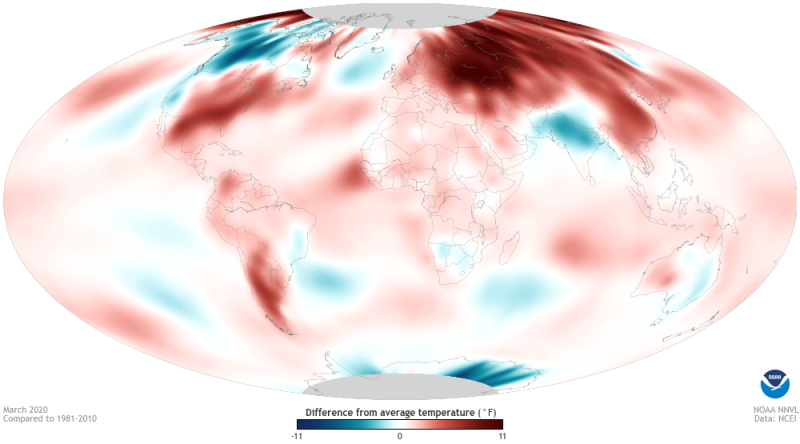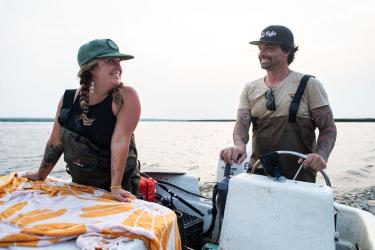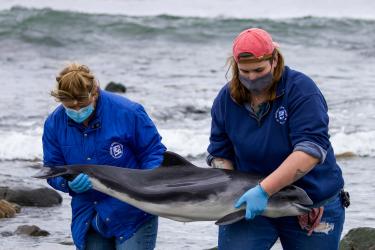Online learning isn’t just for students. The Chesapeake Exploration website offers online courses designed for teachers and other educators. The courses focus on science topics related to the Chesapeake Bay, as well as different ways to teach about science—in and out of the classroom.
Many of the online courses are self-paced, so educators can complete them whenever they want. Other moderated courses are offered throughout the year.
New Course Shares Climate Science Overview
The NOAA Chesapeake Bay Office, which manages Chesapeake Exploration, recently posted a new course: “Teaching Climate Change: Climate Change Science and Storytelling.” The course describes evidence of climate change and discusses how to identify and avoid repeating common misconceptions. It continues by highlighting how Earth is a complex, interrelated system. It discusses how to make climate science a relevant topic with students by having them use storytelling to help connect them with their ecosystem and their community. The course also describes working with students as they engage in climate solutions.
In addition to benefiting from the contents of the Teaching Climate Change course, educators can apply for continuing education credits for tackling the course in:
- Delaware
- Maryland
- Pennsylvania
- Virginia
- West Virginia
- Washington, D.C.
Course developers estimate that it takes about 15 hours to complete the Teaching Climate Change course.
Courses Also Highlight Innovations in Teaching Environmental Literacy
Other courses available through Chesapeake Exploration focus on tools and techniques that teachers can use to help students learn about their environment. Two of these courses focus on “Meaningful Watershed Educational Experiences,” (MWEEs). MWEEs are project-based learning for students in kindergarten through high school. They focus on investigations into local environmental issues. They lead to action and engagement such as students developing and implementing a plan to clean up a stream on school property.
Chesapeake Exploration offers two courses to help educators learn how to use MWEEs with their classes:
- MWEE 101 shares how a MWEE can support formal education goals and standards
- MWEE 201 dives into more detail on how to plan your own MWEE
Another course focuses on the “Next Generation Science Standards and Environmental Literacy.” This course focuses on the three dimensions of the Next Generation Science Standards: science and engineering practices, crosscutting concepts, and disciplinary core ideas. Participants consider how the NGSS approach to formal science education can be used in nonformal environmental literacy efforts.
Chesapeake Exploration features additional courses on a range of Chesapeake Bay and science topics, as well as courses related to how to teach science. For more information on Chesapeake Exploration, or for ideas on how to use Chesapeake Exploration courses in your next educator training, contact Krysta Hougen.


